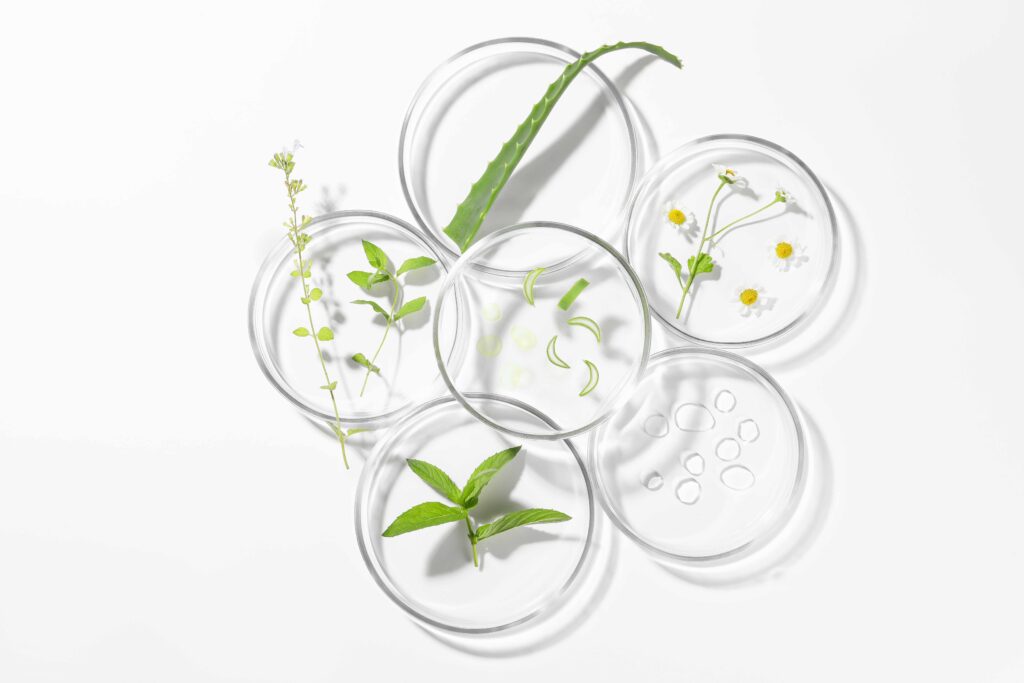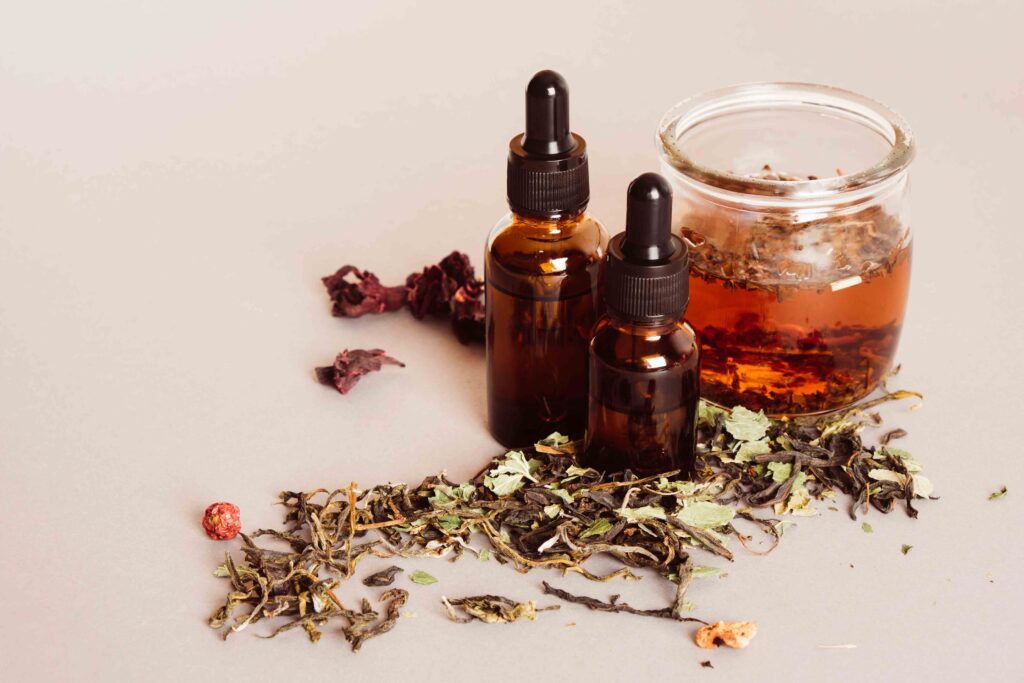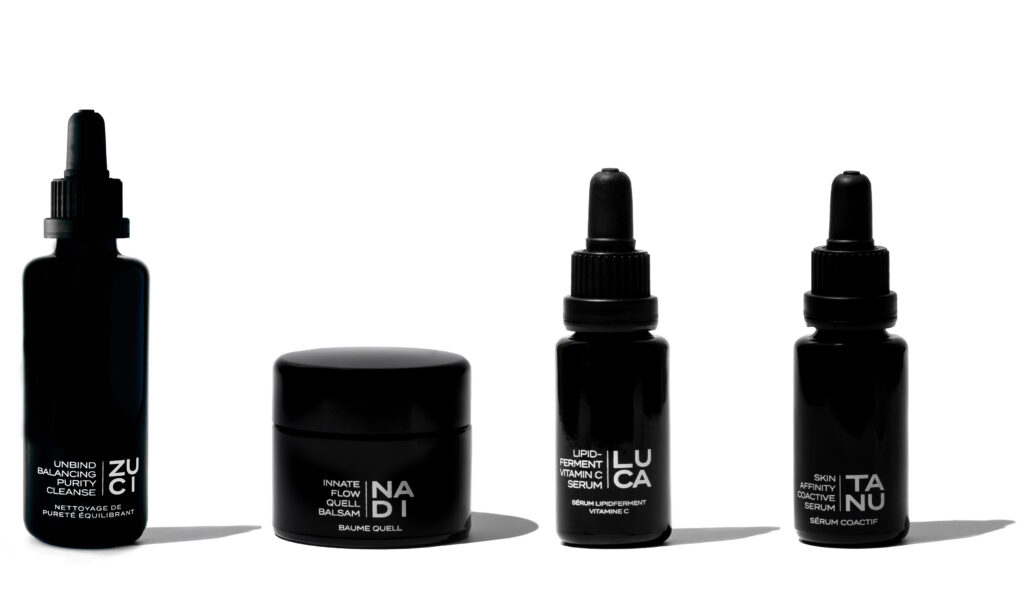Holistic Skincare and The Role of Adaptogens
First things first, what are adaptogens? a quick history lesson can help us understand where this term came from. The term adaptogen was introduced into scientific literature by Russian toxicologist Nikolay Lazarev in 1957. Adaptogens refer to substances that increase the “state of non-specific resistance” to stress. His concept was based on Hans Selye’s theory of stress and general adaptation syndrome. This has 3 phases: alarm phase, phase of resistance, and phase of exhaustion. Soviet scientist, and pharmacologist Israel Brekhman, postulated that adaptogens must be safe and normalise body functions irrespective of the nature of stressors. By definition, an adaptogen is a herb that:
- Supports a systemic resilience to any kind of stress and stressor
- Has a homeostasis-invoking normalising influence, irrespective of the direction of change from physiological norms caused by the stressor. This is the principle of a medicinal substance that is ‘two-directional’. When estrogen levels are too high then Shatavri tends to lower it, if it is too low, then Shatavri tends to raise it.
- Be safe and do not influence normal body functions more than required.

How do adaptogen plants work?
Research is beginning to suggest they could combat everything from fatigue and mental exhaustion to stress and anxiety. Adaptogens relieve stress by modulating the release of stress hormones from the adrenal glands. As biological response modifiers (BRMs) adaptogens restore the body’s innate immune function and help the body adapt to different stressors. This gives them preventative and protective as well as curative activity in compromised immunity.
By optimising the body’s adrenal functions adaptogens support our health and vitality helping to:
- Improve overall wellbeing
- Increase energy
- Optimise organ function
- Reduce stress response
- Increase inner strength
- Improve blood sugar levels
- Optimise protein synthesis
- Reduce inflammatory cortisol levels
- Improve cholesterol ratios
- Regulate the hormonal balance
Adaptogens for your holistic skincare
This is a list of the better-known adaptogenic herbs. I recommend finding a Naturopath for consolation. A naturopath aims to bring an individual back to a homeostatic state by reaching internal stability. Whole-body equilibrium can be achieved through dietary advice, herbal medicines, and nutrient supplementation alongside lifestyle changes. Look for one with a Degree qualification (Bachelor of Health Science Naturopathy).
ALOE VERA
Researchers have taken a renewed interest in aloe vera as a powerful herb and superfood. Two of its compounds, acemannan, and aloctin A, support immune and adrenal health.
ASHWAGANDHA
Traditionally used in Ayurvedic medicine to strengthen the immune system after illness. Proven to improve thyroid function, treat adrenal fatigue, reduce anxiety, and combat the effects of stress on the body. Ashwagandha is a member of the nightshade family, which means that it should be avoided by some people. Caution is recommended for pregnancy and those on an anti-inflammatory diet.
ASTRAGALUS
Used in Traditional Chinese Medicine for centuries, this adaptogenic herb is known to protect the body against disease. Supports the liver, the cardiovascular system, the immune system, and digestion, in addition to the nervous system. Astragalus has been used topically for its antibacterial and anti-inflammatory properties. Researchers have looked at using Astragalus for treatment for those who have weakened immune systems due to cancer/AIDS treatments.
GINGER ROOT
Ginger is a sialagogue herb, meaning it makes you salivate. This helps you to break down food in this first stage of digestion. One study found that ginger extract boosts attention span and cognitive function, making it a potential brain tonic, too.
ELEUTHERO
Also known as Siberian ginseng, and occasionally wucha or ciwujia. Eleuthero has been used in Traditional Chinese Medicine to invigorate sexual function and boost vital energy. Known to increase endurance, reduce fatigue, boost immunity, and for overall longevity.
HOLY BASIL
Known as tulsi, helps enhance the body’s natural response to physical and emotional stress. This helps our physiology to better react to stressors. Proven benefits of consuming holy basil include cancer prevention, skin care, reduced anxiety, and reduced blood glucose in diabetes sufferers.
LICORICE ROOT
The premier digestive adaptogen. Around 90% of all Chinese medicine formulas contain licorice root, it tastes good, especially compared to other Chinese herbs. With a synergistic quality that helps to increase the potency of the formula. Licorice is nourishing for a weakened and depleted immune system. While increasing energy and endurance, and protecting the thymus from being damaged by cortisol.
JIAOGULAN
A member of the pumpkin family, the plant contains enormous quantities of compounds similar to those found in ginseng. It has a reputation as an immortality herb, it shows benefits for the heart and for immunity and brain function.
MACA
Also known as Peruvian ginseng, despite having no relation to the Asian plant. Maca was, revered in ancient Incan culture for its ability to increase strength, energy, and stamina, like ginseng.
MILK THISTLE
The active compound in milk thistle, silymarin, supports liver health and metabolism and helps manage the hormones associated with stress. Milk thistle’s protective qualities of the skin may make it useful for reducing visible signs of aging.
MORINGA
The seeds, leaves, roots, and oils of the plant are used throughout Southeast Asia. It is an ingredient in many common dishes. As part of traditional medicine, it supports the immune response, eases swelling, and promotes energy and adrenal health.
PANAX GINSENG
Known as Korean ginseng or Asian ginseng is used to rejuvenate and invigorate the body. In Traditional Chinese Medicine, stimulating the body and improving energy and stamina. In China, ginseng is given to people who are tired, worn out and have low chi. Often Prescribed to patients on their release from the hospital to help build up strength. Cancer centres around the country give ginseng to patients with cancer.
PANAX QUINQUEFOLIUS
Known as American ginseng, this herb is known in Traditional Chinese Medicine for promoting yin (shadow, cold, negative, female) energy. Asian ginseng promotes yang (sunshine, hot, positive, male) energy. American ginseng is used for its calming and tonic properties.
REISHI MUSHROOMS
Known as Ling Zhi in Chinese, is a non-toxic mushroom used for regulating the immune system and organ function. When taken regularly, reishi mushrooms improve liver function, reduce cancer risk, and even lower blood pressure. Studies show that the ganoderic acids in reishi mushrooms can help alleviate common allergies and asthma. This is due to their natural antihistaminic properties.
RHAPONTICUM ROOT
Rich in antioxidants, helping to promote cell health and even reduce blood lipids. Some studies have shown that rhaponticum can help stimulate the nervous system and memory. Rhaponticum is, however, best known for its ability to replicate the effects of steroids. Rhaponticum can help accelerate weight gain, particularly in skeletal muscles, completely independent of testosterone.
RHODIOLA ROSEA
A popular adaptogen in Siberia is known as Golden Root. The herb can be stimulating at low doses and becomes calming at higher doses. It reduces the effects of stress on the body and can reduce fatigue as well.
SEA BUCKTHORN
A super-fruit that contains all of the omegas 3, 6, and 9, alongside the rare omega 7. With more than 60 antioxidants and at least 20 minerals. Sea Buckthorn is known as the “Holy Fruit” in the Himalayan Mountains where it is grown. Used to improve skin health, particularly beneficial for psoriasis.
SCHISANDRA
Known as the Five Flavored Berry, this is a general tonic that decreases fatigue and increases endurance and physical performance. Named for its sweet, sour, salty, bitter, and pungent flavours, it is used in Traditional Chinese Medicine for longevity and energy, and as a sexual tonic.
TURMERIC
Helps the body maintain healthy body weight, blood glucose, cholesterol, corticosterone, and memory. Turmeric’s adaptogenic actions are due to its ability to support the body’s innate antioxidant function. Along with helping the body maintain healthy levels of corticosterone.

Adding Adaptogens to Your Diet
In addition to knowing how much of an individual adaptogen to add to your diet, it’s also important to decide how to consume it, there’s no one right way to take them so it’s just a matter of personal preference.:
- A standardised extract in capsule or tincture form
- Drink in tea or a powder to add to water or a smoothie
- Homemade latte-style drink
- Eat as a food for example: Maca powder can be added to a smoothie bowl, porridge, or muesli – the options are endless!
An important fact to grasp is that adaptogens don’t work on any one condition of the body but rather help to strengthen our bodies as a whole. Adaptogens work to bring the body back into balance and like most healthy habits, are not a quick fix to any one problem.
To get the greatest benefit from introducing adaptogens to your diet, it’s important to take a holistic approach to your health. If you’re using adaptogens to help with Chronic and or // adrenal fatigue, a few lifestyle tweaks can help increase the effectiveness of the adaptogens:
- Give yourself the opportunity for 8 hours of sleep
- Significantly reduce or eliminate caffeine
- Reduce your sugar intake
- Calm down – deep breathing and meditation should not be underestimated!
- Gentle outdoor exercise daily – boost your vitamin D
- Eating a whole food-based diet.
While adaptogens can be taken long-term, most experts recommend taking breaks every so often: a day off per week, a week off every few months, and a month off every year. People with diabetes, autoimmune disorders, blood pressure disorders, or cancer should be particularly vigilant about discussing adaptogens with their Doctor and or Naturopath before introducing adaptogens to their diet, as should pregnant women or women who are breastfeeding.
Can adaptogenic plants improve the health of your skin?
Adaptogen’s benefits depend on which adaptogenic herbs you use, in skin care they help your body and skin stay strong and balanced. When suffering from unexpected breakouts, cortisol levels are likely elevated due to stress, therefore leading to oil production increasing, clogged pores and blemishes.
When stress levels rise, the increased presence of adrenaline and cortisol contributes to the breakdown of collagen, decreased circulation, and increased inflammation. The appearance of redness, dry patches, fine lines, dullness, and breakouts on your face – and the rest of your body! The reduced circulation results in less oxygen reaching your skin, along with vital nutrients, and antioxidants our skin needs to maintain a robust, protective skin barrier.

ADAPTOGENIC COSMETIC INGREDIENT IN OUR PRODUCTS
- FERMENTED LICORICE ROOT. This has been found to counteract inflammation and irritation.
- LIPOSOMAL GOJI BERRY. Reduces irritation and minimizes sun damage that leads to wrinkles, age spots and sagging skin.
- SCHISANDRA FRUIT CO2 EXTRACT. Lignans are compounds with potent antioxidant and anti-inflammatory properties. Boosting skin resilience while reducing both redness and inflammation.
- GINGER ROOT. Gingerol fights skin-damaging free radicals and can help promote a brighter, firmer
- CHAMOMILE CO2 EXTRACT. Apigenin is a compound that can improve skin barrier function, other compounds include alpha-bisabolol, alpha-bisabolol oxides A & B and matricin have anti-inflammatory effects, one study has shown that the flavonoids in chamomile can penetrate deep into the skin and inhibit the release of chemicals that cause inflammation.
- GINKGO LEAF ARTISAN FUSION. Anti-inflammatory properties. Shown to help treat skin inflammation.
- GOTU KOLA ARTISAN FUSION. Rich in triterpenoids these organic compounds can boost antioxidants. All of these wonderful qualities have made it an excellent natural and organic herb for oily skin and to help minimise the appearance of skin aging.
- TURMERIC ROOT CO2 EXTRACT. High in flavonoids and with over 6,000 clinical studies attesting to its ability to protect and nourish the body. Improves circulation, reduces inflammation and heals wounds.
- SEA BUCKTHORN. A potent skin-nourishing properties used to improve skin health, linked to healing psoriasis and slowing the visible signs of aging.
Conclusion
Incorporating adaptogens in my daily life has helped my recovery from Chronic Fatigue and adrenal fatigue. I drink Tulsi and Turmeric teas daily along with using Maca and Turmeric when cooking. Over time, my energy levels have increased and calmed cortisol levels thereby improving my sleep patterns and well-being. Reishi mushrooms can help calm the nervous system, reduce stress, support the immune system and promote deep sleep.
I have utilised the incredible benefits of adaptogens to boost my skin health. My impressive results with adaptogens led me to incorporate numerous adaptogenic ingredients into the entire range of FIFTY7KIND products.
TANU Skin Affinity Coactive Serum: Sea Buckthorn Berry, Goji Berry, Chamomile Flower, Turmeric Root and Gotu Kola.
NADI Innate Flow Quell Balsam: Ashwagandha Root, Chamomile Flower, Ginger Root and Tulsi Leaf.
LUCA Lipid-Ferment Vitamin C Serum: Schisandra Fruit, Licorice Root and Ginkgo Leaf.
ZUCI Unbind Balancing Purity Cleanse: Schisandra Fruit, Licorice Root and Echinacea Flower, Leaf and Stem.
Until next time be human, be kind, be you.

REFERENCES:
- Bhatia N, Jaggi AS, Singh N, Anand P, Dhawan R. Adaptogenic potential of curcumin in experimental chronic stress and chronic unpredictable stress-induced memory deficits and alterations in functional homeostasis. J Nat Med. 2011 Jul;65(3-4):532-43. doi: 10.1007/s11418-011-0535-9. Epub 2011 Apr 11. PMID: 21479964. https://link.springer.com/article/10.1007/s11418-011-0535-9
- Effects of Adaptogens on the Central Nervous System and the Molecular Mechanisms Associated with Their Stress—Protective Activity
https://www.ncbi.nlm.nih.gov/pmc/articles/PMC3991026/ - Adaptogenic supplements help conquer stress
http://www.organicauthority.com/adaptogenic-supplements-help-conquer-stress/ - How to naturally slow ageing
https://draxe.com/how-to-naturally-slow-aging/
Comments +